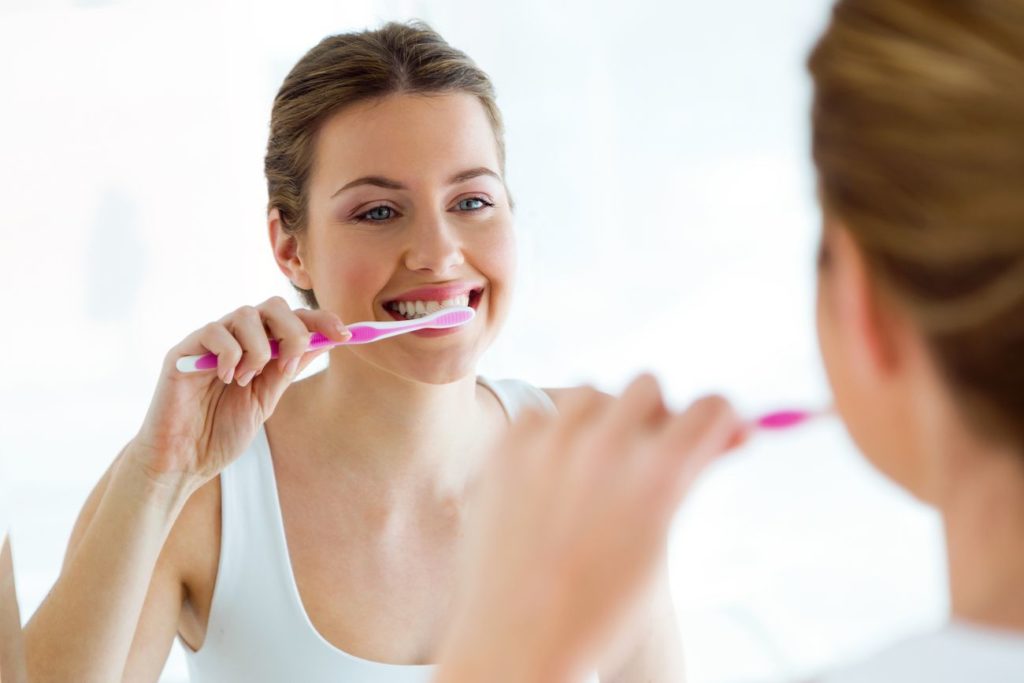Maintaining good dental hygiene is important for your overall health and well-being. According to WHO, about one billion people are affected by dental issues across the world with the genesis being poor dental hygiene. Well, dental care actually goes beyond brushing your teeth. It is all about adopting the right habits that collectively safeguard your oral health.
Here’s a comprehensive guide on some of the easy habits to help you effectively protect your teeth and enjoy a radiant smile for years to come.
Brushing Twice Daily
Table of Contents
It goes without saying that the foundation of good dental care begins with regular brushing. You should thus brush your teeth for at least two minutes, twice a day using a soft-bristled toothbrush and fluoride toothpaste. Ideally, you should do so once in the morning and once before you go to bed. Ensuring comprehensive oral health involves more than just regular brushing. In addition to maintaining a diligent brushing routine, it’s crucial to schedule regular check-ups with a reliable dentist in tampa fl to address any potential dental issues and receive professional guidance on optimal oral care practices.
Doing so daily will help you remove food particles that will build up and stain your teeth. You will also fight plaque, and bacteria that accumulate throughout the day, a feat that prevents the formation of harmful tartar.
According to a study, using fluoride toothpaste reduces the amount of decay when compared to non-fluoride toothpastes. You will also strengthen your tooth enamel and reduce the risk of decay and cavities.
Using a Proper Brushing Technique
Still brushing, you ought to do it right if you are to maintain optimal oral health and safeguard your teeth from decay and damage. Again, you need a soft-bristled toothbrush at a 45-degree angle to the gum line to effectively remove plaque and prevent accumulation.
You should also brush for at least two minutes to ensure thorough cleaning.
Then, use gentle, circular motions, and don’t forget to brush your tongue to remove bacteria and keep your breath fresh.
Tip: The goal is to ensure you cover all surfaces of your teeth as you brush, including the back, front, and chewing surfaces. You should floss to clean areas between your teeth and along the gumline that a toothbrush may not reach effectively.
Adopt Mindful Eating Habits
What you eat also contributes to your dental health. For example, eating more slowly, allowing saliva to effectively break down food particles tends to reduce the impact of acidic substances on teeth.
Now, chewing food thoroughly is part of the initial digestion process which actually minimizes plaque buildup.
Additionally, being mindful of the types of foods consumed can limit sugary and acidic intake, as they contribute to tooth decay. If consumed, rinse your mouth with water afterward.
Tip: Be conscious of portion sizes and avoid continuous snacking to prevent constant exposure to harmful substances. Go for tooth-friendly foods like crunchy fruits and vegetables that stimulate saliva production.
Scheduling Regular Dental Check-ups
Regular dental check-ups are another habit you should inculcate for your oral health. These appointments, typically recommended every six months, serve as proactive measures against dental issues. During these visits, dentists perform thorough examinations, identifying potential problems in their early stages.
Dental appointments are not just limited to check-ups. A dental emergency can occur and the pain can prove distressing to wait for the appointment. It could actually be an underlying issue and you risk worsening if you wait. In this regard, you can simply search for an emergency dentist near me and get emergency dental treatment. This will help you arrest the dental issue and get back to your normal life as soon as possible.
Generally speaking, consistent dental check-ups will help you to protect your teeth in the long run
Stay Hydrated
Staying hydrated also plays a crucial role in safeguarding your teeth. For starters, adequate hydration helps maintain a balanced saliva production, which is essential for oral health. Here is the catch; saliva contains minerals like calcium and phosphate that aid in remineralizing tooth enamel.
This strengthens it against decay and erosion caused by acids from food and bacteria.
Furthermore, staying hydrated by consuming water rinses away food particles and reduces the concentration of harmful acids in your mouth, diminishing the risk of plaque buildup and cavities.
Optimal hydration creates a moist oral environment, preventing dry mouth, a condition linked to increased susceptibility to dental problems like gum disease and tooth decay.
Avoid Smoking and Excessive Alcohol Consumption
Smoking is a habit that leads to gum disease, tooth discoloration, and a higher risk of tooth loss due to reduced blood flow to the gums. It also hinders the body’s ability to fight infections, impairing healing after dental procedures. Well, excessive alcohol consumption can erode tooth enamel, leading to decay, and contribute to dry mouth, increasing vulnerability to cavities and gum disease.
You are thus better off avoiding these habits if you are to safeguard your oral health, plus you’ll preserve your enamel integrity, reduce gum inflammation, and lower the risk of tooth decay and other oral complications.
Final Words
That’s it. These easy dental habits can help you maintain excellent dental hygiene and prevent many common dental problems. These simple habits will also go a long way in preserving your beautiful smile.
The beauty is that most of the habits are pretty much DIY but don’t hesitate to consult your dentist promptly for regular checkups that will help spot and correct any issues early. You can also contact a dentist if you experience persistent tooth pain, gum pain, or any other discomfort in your mouth.

